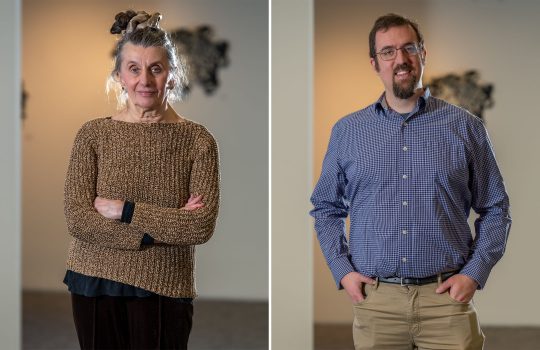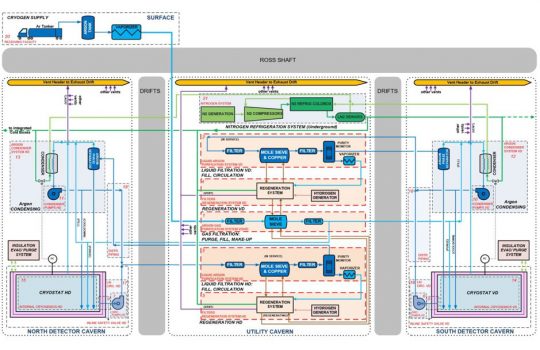
David Ibbett has created music from neutrino data as Fermilab’s inaugural guest composer. Photo: Nile Scott Photography
Fermilab guest composer David Ibbett will premiere “MicroBooNE” at a virtual concert on Tuesday, Dec. 8, at 7:30 p.m. CST.
When a neutrino collides with an atom inside one of Fermilab’s detectors, it sets off a cascade of charged particles. Scientists can turn the data into images that show the paths taken by the particles and reveal the neutrino’s properties. But what would this event sound like?
David Ibbett, Fermilab’s first guest composer, has been exploring that question during his 2020 residency at the lab. Through a process known as “data sonification,” Ibbett converts real scientific data into the notes and rhythms that form the basis of his music.
Ibbett’s latest piece is a sonification of data from Fermilab’s MicroBooNE experiment. In this interview, he shares an excerpt of the song, explains the science behind it and describes his compositional process.
Listen to the audio interview:
The entire piece, also called “MicroBooNE,” will have its world premiere at a virtual concert on Tuesday, Dec. 8, at 7:30 p.m. CST. An evening of interwoven talks and performances, Neutrino Music: A Composer’s Journey will feature Ibbett’s ongoing Neutrino Music project as well as music inspired by exoplanet research. The event is part of the Fermilab Arts and Lecture Series. Tickets are free, but registration is required. Find out more and register to attend.
The above animation shows the particle tracks from a collision between a neutrino and an argon nucleus inside the MicroBooNE detector, synced with an excerpt from David Ibbett’s composition “MicroBooNE.”
Below are the lyrics of the excerpt discussed in the interview:
—
Nu, proton, electron
Cascade, cascade, cascade
I counted up the blows that came our way
It’s not enough to turn my love away
Ionize inside!
Ionize inside, ionize inside!
Particles come raining down
Annihilates my pride
Tears are falling on the ground
In scintillating light
—
Beth Sterling — soprano
Joseph Ibbett — animation
Fermilab is supported by the Office of Science of the U.S. Department of Energy.
The Office of Science is the single largest supporter of basic research in the physical sciences in the United States and is working to address some of the most pressing challenges of our time. For more information, visit science.energy.gov.




